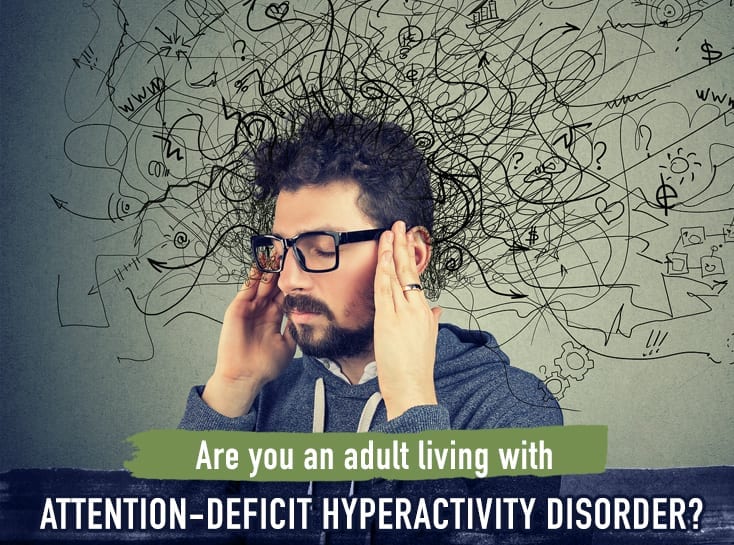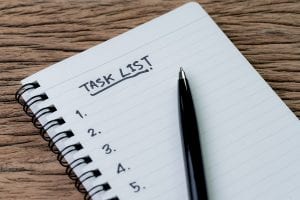Managing ADHD, or Attention Deficit Hyperactivity Disorder, is no easy feat. With this disorder, anything from paying the bills to completing your work on time can become a difficult mountain to climb, not to mention juggling family and social demands.
Fortunately, there are a few skills you can learn that can help you better control your symptoms and keep yourself on track. Just remember, changes like these take time and won’t happen overnight. But with practice, patience, and positivity, you can become more productive, organized, and in control. Check out these ADHD management tips below.
Get Organized
The most prominent traits of ADHD are inattention and a tendency to become easily distracted. As a result, organization is among the most challenging tasks that someone with the disorder can face. To make it things easier on yourself, it’s recommended that you break organization down into smaller, more manageable tasks in order to take a more systematic approach.
Tools like calendars, day planners, and lists can go a long way towards becoming more organized. Effective use of these tools, be it via your phone, computer, tablet, or even the physical object itself, can help you control clutter and reduce the risk of becoming overwhelmed by your daily repsonsibilities.
Create a Schedule
ADHD can wreak havoc on time management. Due to the ease of distraction that most sufferers of this disorder experience, it can be difficult to remember appointments, meetings, and deadlines, and become all too easy to underestimate the amount of time you’ll need to complete certain tasks.
The best way to combat this is by creating an effective schedule and paying close attention to the clock. When crafting your schedule, try to give yourself a bit more time than you expect you’ll need. That way, if you need to take a bit longer to complete some tasks, you’ll have more than enough time. As an added bonus, if you finish early, you’ll get some extra downtime.
Learn to Prioritize
Prioritizing goes hand in hand with proper scheduling. As an ADHD sufferer, it can be difficult to manage impulse control and efficiently complete tasks. To overcome this, it’s best to decide which tasks should be tackled first. Ask yourself what your most important or involved task is, and then work to accomplish that task first.
Just like with organization, you can take these tasks one stop at a time and take frequent short breaks to avoid getting overwhelmed. When you are working diligently, avoid getting sidetracked by sticking to your schedule and using a timer if necessary.
Learn to Say No
One major symptom of ADHD is impulsiveness. This can lead you to agree to more projects than you can handle, which will disrupt all the hard work you’ve done to get to this point and can lead to feelings of anxiety over social engagements.
It’s OK to politely say no to certain commitments if you’re feeling overwhelmed. In the long run, you’ll find that doing this when necessary will improve your ability to accomplish tasks, keep social dates, and live an all-around healthier lifestyle.
Control Your Budget
Keeping a tight focus on your budget and expenses can prevent you from finding yourself getting sidetracked or feeling like you’re drowning when the bills start to pile up. Start by keeping track of every expense, no matter how small, for one month. At the end of that month, you’ll have a better idea of where your money is going, which will allow you to better control your spending.
Establish an easy, organized system that helps you save documents, receipts, and bills. A good way to do this is to go paperless by switching to online banking. Doing so allows all of your files to be stored electronically and reduces anxiety over the clutter that arises as a result of a paper trail. Be sure to set up bill pay reminders and put a stop to impulse shopping.
Avoid Distractions
This one may be easier said than done, but it’s key when learning to better manage your ADHD. Where you work can play an important role in how well you focus. If you don’t have your own office, you may be able to relocate to a quieter, more private space like a vacant office or conference room.
You can also minimize external commotion by facing your desk toward a wall, keeping your workplace free of clutter, and letting your calls go to voicemail. If you are especially sensitive to noise, you can try noise-cancelling headphones or a white noise machine.
Get Enough Sleep
It’s been said before, but sleep deprivation can drastically increase stress and symptoms of adult ADHD. In turn, this can negatively affect your ability to focus and stay on top of your work throughout the day.
Simple changes to your daily lifestyle, such as reducing caffeine intake (especially late in the day), smoothing out a chaotic bedtime routine, and adhering to a regular wake-up schedule can go a long way toward ensuring you get the proper amount of beauty sleep.
Eat Healthy
Unhealthy eating habits don’t cause ADHD, but a poor diet can exacerbate symptoms dramatically. Making simple but key changes to your everyday diet can result in big reductions in distractibility, hyperactivity, and stress levels.
If you want to start eating healthier but aren’t sure where to start, start small by eating smaller meals throughout the day rather than only a few large ones. Additionally, try to include healthy protein and high-fiber foods in every meal. Of course, be sure to avoid sugar and junk food as much as possible.
Exercise Regularly
Regular workouts are perhaps the most positive and efficient ways to reduce hyperactivity and inattention caused by ADHD. Not only can it reduce these symptoms, but it can also reduce stress, boost your mood, calm your mind, and help you to burn off the excess energy that may put stress on your social relationships.
For maximum effect, you should partake in fun but vigorous exercise on a daily basis. Try heading outdoors for your workout if you really want to connect with yourself through nature. Relaxing forms of exercise, like mindful walking, yoga, or tai chi can also accomplish the same goals.
Take Time to Gather Your Thoughts
The most important thing to remember when trying to get a handle on your ADHD is that you come first. Always take a few moments to practice mindfulness, slow down, and gather your thoughts.
If things begin to feel overwhelming or frustrating, excuse yourself from the conversation until you feel like you are once again in control of your emotions. You can also write things down and rehearse in order to prepare yourself for particularly stressful tasks.
For more information about dealing with ADHD as an adult, or to learn what you can do to help other individuals who may be struggling, don’t hesitate to contact the mental health experts at the Lehigh Center for Clinical research today!













